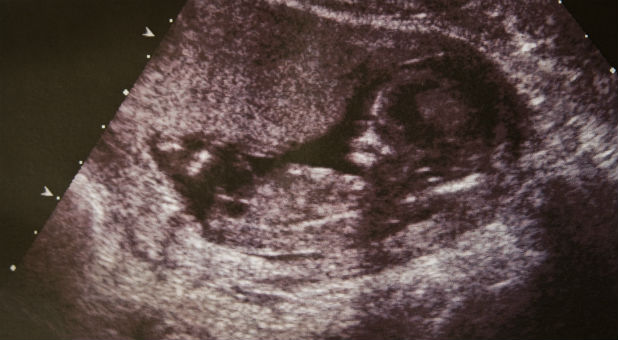Facts Prove Hollywood, Media Lying To You About Life-And-Death Issues
Wednesday night’s presidential debate set off a firestorm of confused and misleading remarks regarding late-term abortions in America.
“The abortion industry denies the science of fetal development and continues its barbaric practice of killing over a million preborn children each year, including thousands who are fully developed and can survive outside the womb. Planned Parenthood and other pro-abortion groups have consistently fought restrictions on late-term abortions and lobbied for abortion in all nine months of pregnancy, up until birth,” Live Action President and Founder Lila Rose says.
“Contrary to the claims of the abortion industry and its allies, the evidence shows that most late-term abortions aren’t done for any claimed ‘medical’ reasons.
“Even research published by the pro-abortion Guttmacher Institute found that abortions for fetal abnormalities ‘make up a small minority’ of late-term abortions, and those that are purported to be done to save the mother’s life are an even smaller number.
“More than 1,000 medical professionals have concluded that abortion is never medically necessary to save a mother’s life. While life-saving treatment for a mother may result in the death of her preborn child, there’s a fundamental difference between a woman receiving medical treatment for her condition versus choosing an abortion to directly kill her preborn child.
“In America, most late-term abortions are called “induction abortions” and are committed by using a long needle to pierce a baby’s brain or heart to deliver a lethal dose of digoxin, which causes cardiac arrest. The baby is then delivered stillborn two to three days later.
“What likely comes as a surprise to most Americans is that partial-birth abortions have been banned in name only. The federal law banning partial-birth abortions still allows for the abortionist to partially deliver a child—with her legs dangling outside of her mother or most of her head being delivered—before he kills her. Anyone can clearly see that the child is only seconds away from being born and having legal protections if it weren’t for the abortionist waiting to kill her as she moves through the birth canal.”
Federal law makes it legal to abort babies in the ninth month. While some states have restrictions, all states allow abortion into the ninth month for certain exceptions, and eight states allow abortion until birth for any reason (Colorado, New Hampshire, New Jersey, New Mexico, Oregon, Rhode Island, Vermont and Washington State).
Most late-term abortions are not done for purported medical reasons. That claim isn’t backed by the evidence. Diana Greene Foster, professor at the University of California–San Francisco’s Bixby Center for Global Reproductive Health, is the author of a 2013 study published by the Guttmacher Institute that examined the reasons for late-term abortions. From FactCheck.org: “[Clinton] said based on limited research and discussions with researchers in the field that abortions for fetal anomaly ‘make up a small minority of later abortions,’ and that those for life endangerment are even harder to characterize.”
From the law:
The term “partial-birth abortion” means an abortion in which the person performing the abortion deliberately and intentionally vaginally delivers a living fetus until, in the case of a head-first presentation, the entire fetal head is outside the body of the mother, or, in the case of breech presentation, any part of the fetal trunk past the navel is outside the body of the mother.
With nearly one million abortions annually in the U.S., abortionists are killing close to 13,000 children every year who are often fully developed and can survive outside the womb. The Centers for Disease Control reported in 2012 that 1.3 percent of abortions were committed at 21 weeks’ gestation and later.
The New England Journal of Medicine reports that with medical intervention, the survival rate of babies born at 26 weeks is as high as 81 percent—with 75 percent of those children having no severe impairments.














































